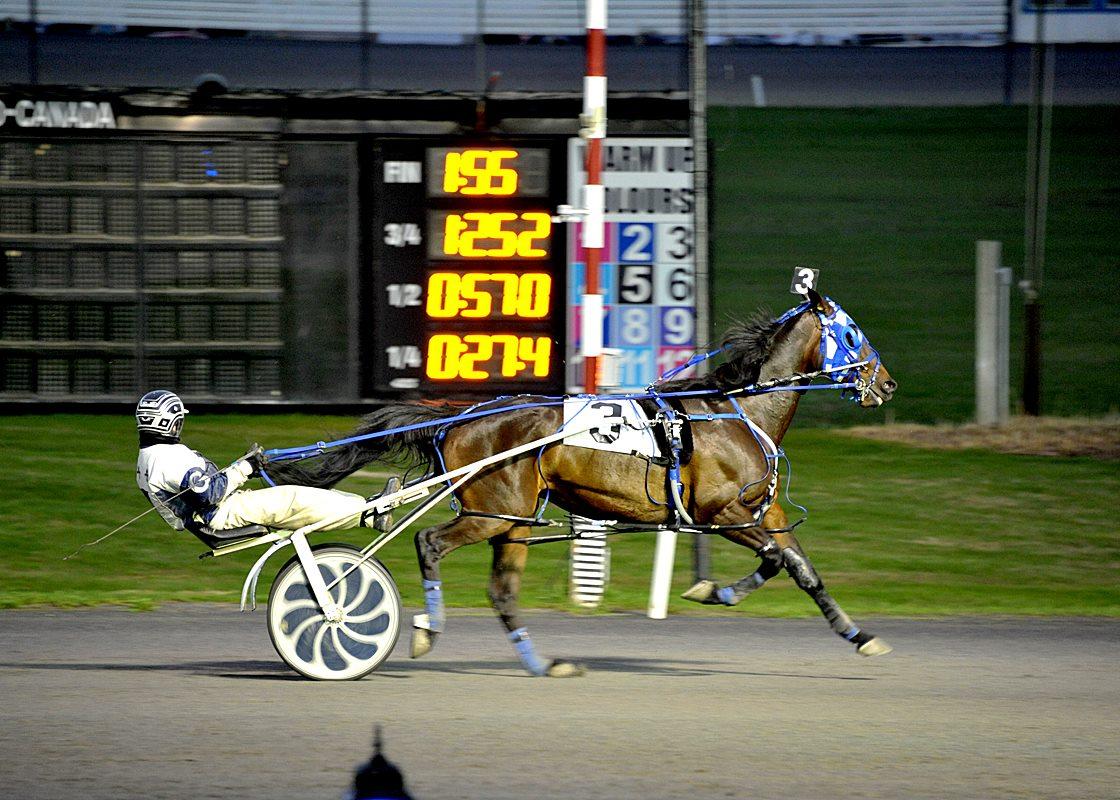By Lynn Macnab
The Ontario horse racing industry finally seems to be getting back on track, according to some local members.
A recent announcement about the Ontario Lottery and Gaming Corporation (OLG) and Hard Rock International going into a partnership has many industry leaders and some local equine trainers thrilled about the future of horse racing.
Vankleek Hill horse buyer and seller, Garny Stephens is optimistic about the future of racing and the industry as a whole. Stephens has been breeding, training, buying and selling horses for over 38 years, a business he learned from his father Wilmer.
“This is a good thing in general,” Stephens said. “The purse structure will be bigger. That draws more people, more horses and I’ll have a greater variety of horses to buy and sell.”
Five years ago, Ottawa Mayor Jim Watson and others advocated for the the relocation of the Rideau Carleton Raceway slots to downtown Ottawa in order, they said, to compete with Lac Leamy Casino in Gatineau.
In the wake of the 2012 provincial budget that ended the 14-year Slots at Racetrack Programs, a $345 million revenue-sharing agreement between OLG and various tracks, including Rideau Carleton, came to a halt. The agreement had infused close to $1 billion into the primarily rural economy. The change had a severe effect on horse trainers, veterinarians, farriers, farmers and those who supplied feed, equipment and many other equine supplies and services. Close to 1,000 jobs were lost and 13,000 horses were displaced.
“It killed the breeding industry,” Stephens said. “Now it’ll come around again.”
“It just didn’t work,” said Phil Doyle, a racehorse trainer from Russell. “And now they’re finally realizing that so they have to bring them back.”
Like Stephens, Doyle has been all over North America racing at one time and training standard bred horses.
“We call casinos with a track racinos,” Doyle said. “They do much better than your average casino because they draw the entire family.”
He also explained how Hard Rock will be bringing in a jumbotron, something rarely seen in Canadian horse racing.
“It’s a big screen like you see at rock concerts so you can watch the entire race whether you’re up close or not. It’s a great addition.”
Hard Rock operates 175 high-end restaurants, 24 hotels and 11 casinos worldwide.
Doyle reduced the number of horses he was training at the Windview Farm near Russell, but says he’ll now increase his herd, as will Stephens.
The $320 million partnership is expected to energize the Eastern Ontario area by increasing jobs and reestablishing the lagging horse racing industry.
According to Progressive Conservative MPP Lisa MacLeod, the industry is an agricultural institution and needs to be protected. The investment, she says, will be good for agriculture and tourism, and good for thousands in rural Ontario who’ve made a living and a life in an important industry.
The entertainment centre will be rebranded as The Hard Rock Casino Ottawa and, according to Hard Rock director Andrew Wright, will support harness racing, a major attraction at the complex.
Stephens explains that with Hard Rock in the picture, he’ll be able to increase his supply of horses available to the Amish in Indiana, where 90 percent of his horses end up.
“They want dark, sound horses off the track. Now I’ll be able to offer them a better variety.”
Hard Rock will own 51 percent of the complex, and the company will take over day-to-day operations as part of their 20-year agreement. Hard Rock says it will integrate educational tools to help guests keep their activities safe and fun, providing assistance and referrals to those in need.
“This is very good for Ontario’s horse industry,” reiterated Stephens. “I’m looking forward to buying and selling more horses. And it’s good for everyone involved in the horse world.”


